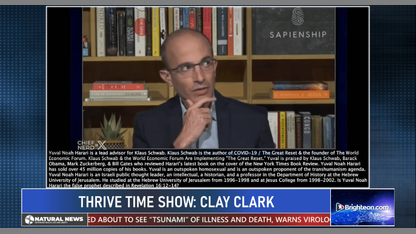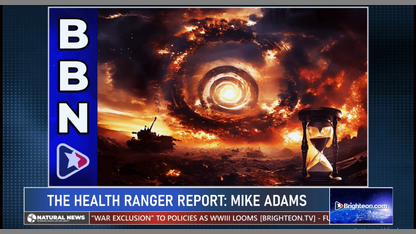
Shares in pharmaceutical company Pfizer fell by as much as 3.1 percent after reports that it was expecting to ship only half of the Wuhan coronavirus (COVID-19) vaccines it had originally planned for 2020 due to supply-chain problems.
Pfizer and its COVID-19 vaccine partner BioNTech had originally hoped to release 100 million doses worldwide by the end of 2020. Now, Dow Jones reports that this has been reduced to 50 million.
"Scaling up the raw material supply chain took longer than expected," said a company spokeswoman to Dow Jones. "And it's important to highlight that the outcome of the clinical trial was somewhat later than the initial projection."
News of the company slashing its production targets quickly caused its shares to fall by as much as 3.1 percent. This also caused the wider stock market to dip – the S&P 500 ended Thursday's trading down 0.1 percent.
Supply chain challenges caused Pfizer to slash production targets
Pfizer has scaled back its COVID-19 vaccine production targets this year after it ran into difficulties securing the materials it needed to produce them at a large scale.
In news releases through September, the company maintained that it planned to produce up to 100 million doses this year. This changed in November when, in several releases, the company cut its estimate to around 50 million doses.
In a statement Thursday, Dec. 3, Pfizer spokeswoman Amy Rose said that multiple factors had slowed the company down. These included the time it took for it to source large quantities of the raw materials it needs to produce the shots. But she said that the company had completed scaling up its manufacturing for the shots and is now producing them at a rapid pace.
"Scaling up a vaccine at this pace is unprecedented, and we have made significant progress as we have moved forward in the unknown," said Amy Rose. She added that scaling up their raw material supply chain "took longer than expected."
The company would not say where the shortfalls in raw materials arose. But insiders say that it was partly due to the company's inexperience with mRNA vaccines, of which the COVID-19 vaccine will be the first the company has ever developed.
In most vaccination campaigns, pharmaceutical companies wait until their product is approved before buying raw materials. But having never manufactured an mRNA vaccine, Pfizer had to scale up production capacity even as research was still under way.
"For this one, everything happened simultaneously," a person familiar with the Pfizer development told the Wall Street Journal. "We started setting up the supply chain in March, while the vaccine was still being developed. That’s totally unprecedented."
Report comes as Pfizer vaccine gets approval in the U.K.
Pfizer slashing its production targets for its COVID-19 vaccine comes just as the shot received the green light for use by the U.K.'s Medicines & Healthcare Products Regulatory Agency (MHRA). According to the U.K. government, doses of Pfizer's vaccine, which it developed with German company BioNTech, will be injected starting next week.
Britain vets vaccines differently from America. Regulators in the U.S. painstakingly reanalyze raw data, poring over thousands of pages of documents, to validate the results of vaccine trials. According to Food and Drug Administration (FDA) Commissioner Dr. Stephen Hahn, the FDA "is one of the few regulatory agencies in the world that actually looks at the raw data."
On the other hand, MHRA regulators, as well as those elsewhere in Europe, lean more heavily on the pharmaceutical companies' own analyses. These agencies don't look at raw data themselves, opting instead to study a drugmaker's own reports. Unless any anomalies are found, their decisions are grounded on company-provided documents.
Despite the differences in regulatory protocols, the U.K.'s approval of a vaccine looks to put pressure on American regulators, who were summoned to the White House on Tuesday, Dec. 1, by President Trump's chief of staff to explain why they weren't ready to do the same.
But Dr. Paul Offit, a professor at the University of Pennsylvania and a member of the FDA.’s vaccine advisory panel, defended the U.S.'s more rigorous approach. In an interview on Wednesday, Dec. 2, he stated that U.S. regulators' success in minimizing unforeseen errors in approving vaccines justified this approach. (Related: Pfizer demands "emergency" authorization from FDA for experimental Covid-19 vaccine.)
"That we’ve been able to get on top of viruses with such a minimal amount of casualties is remarkable," Offit said, adding that American regulators were only days away from finishing their own review.
The FDA has already scheduled a meeting of an independent panel of experts for Dec. 10 to review Pfizer's vaccine.
That said, even if the vaccine is approved for use in the U.S., the question still remains of whether the company can actually produce enough of it.
Follow Pandemic.news for more on the latest COVID-19 news.
Sources include:
Please contact us for more information.



























